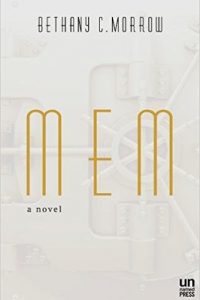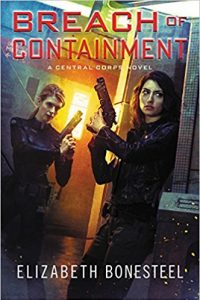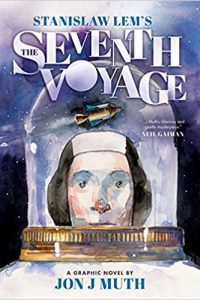Liz Bourke reviews Charles Stross
Empire Games, Charles Stross (Tor 978-0765337566, $25.99, 336pp, hc) January 2017.
 Charles Stross has a habit of writing disturbing worlds. Sometimes, as with his Laundry Files, the horror comes side-by-side with humor; other times, as in his early science fiction, the implacable face of a hostile universe doesn’t wear much of a mask at all.
Charles Stross has a habit of writing disturbing worlds. Sometimes, as with his Laundry Files, the horror comes side-by-side with humor; other times, as in his early science fiction, the implacable face of a hostile universe doesn’t wear much of a mask at all.
Empire Games is the start of a new trilogy, set in the world of his Merchant Princes novels (six books, now released as three omnibus editions), but several years on from the nuclear events that punctuated those novels. Empire Games is a solid entry-point to that continuity – fortunately for your humble correspondent, who may or may not have read the first two Merchant Princes novels over a decade ago, and certainly never read the rest.
There is a brief but comprehensive introduction to the concept on which the setting is founded: there are different timelines, and travel between timelines is possible for certain people unaided, or, for the US, using certain tools. Four timelines are relevant to the events of Empire Games. Timeline one, formerly home to a medieval-esque kingdom controlled by the worldwalking Clan, now with extra irradiated wasteland due to nuclear retaliation from: the US in timeline two, where in the early 2000s an element of the Clan blew up the White House. Now in the year 2020, the US is a hyperparanoid total surveillance state, exploring alternate timelines with the horrified fear that there are more worldwalkers out there with the tools to turn them into an irradiated wasteland. And there may well be: timeline three diverged from the history of timeline two during the 1700s and only recently underwent a revolution. Thanks in part to the efforts of Miriam Beckstein, timeline three is now home to the refugees of the Clan – and they’re busy building their new democratically revolutionary homeland an economy and a military that can stand up to the US that nuked their first home, just in case paratemporal nuclear war comes calling.
As for timeline four… timeline four is the lurking existential horror, a timeline with an uninhabited Earth with evidence of an extremely advanced timeline-hopping civilisation at war. And a gate between timelines to one where there is no longer an Earth. Timeline four, once its significance is revealed, hangs like a sword of Damocles over every move that every character makes.
As does the threat of nuclear war.
In timeline three, Miriam Beckstein – now Burgeson – is a senior government minister in charge of intertemporal technology transfer and development: developing a domestic industry that can rival and surpass the US in timeline two, while also keeping worldwalking operatives active under the noses of the machinery of the US’s omnipresent surveillance state. In timeline two, Rita Douglas – adopted granddaughter of an ex-Stasi officer, natural daughter of Miriam Beckstein, out-of-work thespian, and recessive carrier of the worldwalker gene – is recruited by the Department of Homeland Security. They’ve figured out how to activate the worldwalker gene, and they want Rita to be their first worldwalking spy. It’s not an offer they’re willing to let her refuse….
Empire Games is, in many respects, a classic thriller in the Cold War spy mode, albeit set in an SFnal alternate present/near future (one that, on a social scale, looks less darkly horrifying and more plausible-extrapolation with every passing day) and featuring parallel timelines instead of continental blocs. Stross uses narrative flashbacks – with deft economy – to establish how the world(s) and characters arrived where they are ‘‘today’’ in 2020. The present-day narrative is taut and efficient, intensely claustrophobic and driving forward relentlessly towards a cliff whose shape the reader can’t quite see, but one that feels all the more threatening for being undefined. Discussions among intelligence-agency higher-ups are provided in transcript form, a choice that creates an emotional distance for the reader between them and the characters whose points of view we are permitted to inhabit. It increases the tension, claustrophobia, and sense of lowering threat, for the intelligence-agency staff become moral and emotional ciphers racing towards confrontations out of unchecked paranoia.
But what of the characters? Stross has an elegant efficiency with characterisation: even his walk-ons have a knack of feeling like they exist in three dimensions. Rita Douglas is perhaps for me the most compelling: a young woman thrust into the midst of the apparatus of the security state, kept in the dark, knowing she’s being manipulated and not knowing exactly how. Her developing relationship with old schoolfriend Angie came as a delightful relief: it’s a very necessary interlude with a healthy relationship in which none of the participants are lying to each other, and it makes the rest of the novel feel just that much less inevitably dark. (And queer characters in a Stross novel always make me more hopeful that not everyone is going to die horribly.)
If I have one criticism of Empire Games, it’s that Stross is very obviously not telling us all that (some) of the characters know. There’s a level of transparent manipulation and misdirection – par for the course in a thriller, but nonetheless a little frustrating. Still, Empire Games is immensely compelling, an excellent novel: I look forward to seeing where the story goes from here.






Could not finish past the third chapter. The incessant swearing just wore me down. In Glengarry Glen Ross, the extraordinary story and era swallowed the bad language. This lightweight spy thriller by Mr. Stross does not.
The new editions of the first six novels aren’t omnibuses but rather reworked as single novels which was what Stross intended them to be.